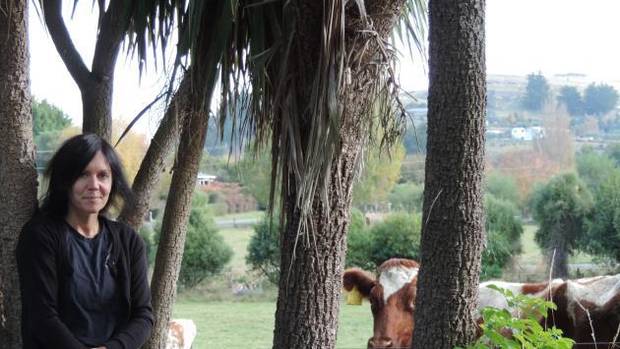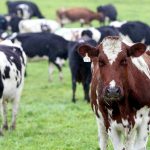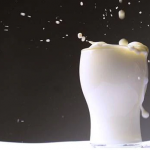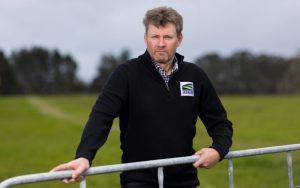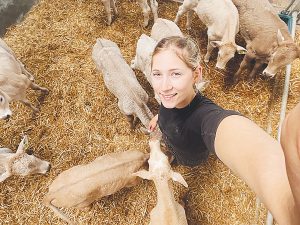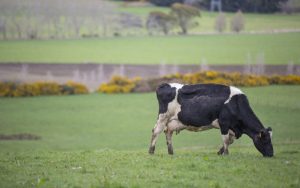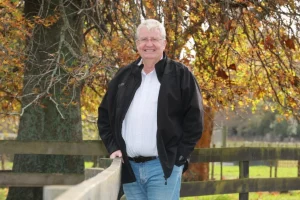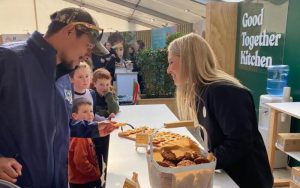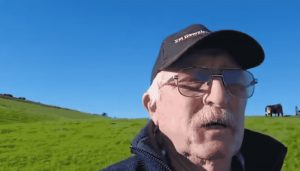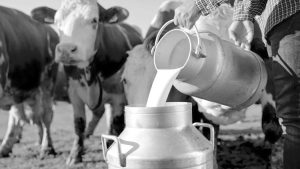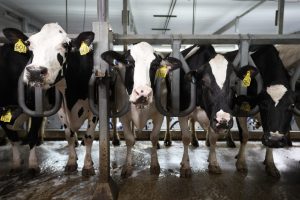
Bethan and Bryan Moore have a herd of just 13 Ayrshire cows with calves on 6ha alongside State Highway 1, near Alma.
Fourteen cows arrived on April 27 and one did something completely unexpected soon afterwards – jumped in the air and fell down dead. It had suffered a heart attack.
So the Moores are soldiering on with the remaining 13, feeding the orphaned calf themselves.
This is the second setback they have faced. Their previous herd had to be slaughtered because of the Mycoplasma bovis outbreak.
But they are persisting with the dream of running a tiny farm on ethical, sustainable principles.
That includes being as organic as possible without the cost and logistical difficulties of official certification.
They bought their land about 18 months ago, after four years of sharemilking in Tasmania.
Mrs Moore grew up near Cardiff, in Wales, and met Mr Moore, a farmer from the North Island, on her travels to New Zealand.
”We were looking for somewhere where we could do what we wanted with the cows, near town, and with a shop,” Mrs Moore said.
The Alma site had all three attributes, plus a temperate climate and a community they were happy to become part of.
The land had previously been a plant nursery and a cherry orchard.
Moore removed one of the cherry plantations and the rest of the trees, growing in bags, have been sold.
Paddocks were being enriched with compost instead of synthetic fertiliser.
Moore shifted 32 tonnes of it in a wheelbarrow for the first two paddocks.
The race has been created by clearing a lot of vegetation through a broad lane of native trees, which provide both shelter and beautification.
The Moores have converted stables into a dairy shed and are awaiting the arrival of a pasteuriser from Greece.
It was fumigated in Singapore and was being inspected by the Ministry for Primary Industries before being sent on to North Otago.
At first, the Moores wanted to sell raw milk, but legislation meant they could only do so by direct deliveries to customers and at a shop.
So they will teach themselves how to use the pasteuriser and allow themselves a broader sales network.
”We’ve got a space at the Dunedin Farmers Market,” Mrs Moore said.
”It’s the best in New Zealand.”
They were thrilled to have been accepted there, meeting its strict requirements.
Sourcing the glass bottles in which the milk will be sold was easy online, Moore said.
Meanwhile, they have started milking their herd.
The calves are being left on the cows until weaning; Moore felt it was ”so unnatural” to remove them at birth.
”We will share the milk with the cow.”
The calves were being separated from their mothers at night – a process that took some tweaking after ”a lot of escaping” the first night.
The business is a family concern.
The Moores’ son Kobi (9) and Mrs Moore’s grandson Kit (9), who lives with them, are actively involved and both want to become farmers.
Kit’s mother, Chloe, is an accountant who is handling that side of the operation, and Mrs Moore’s daughter Daisy, who is completing a marketing and human resources degree at the University of Otago, has set up a website at thenaturaldairy.nz.
Once the milk sales were established, the Moores hoped to branch out into a tourism initiative offering visitors the chance to see the cows grazing and being milked.
